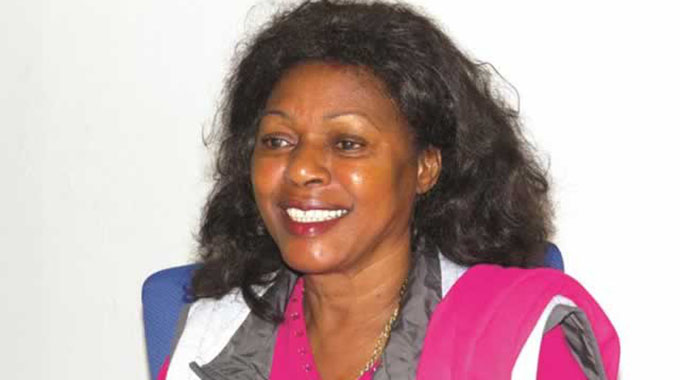Walking the positive talk
Ruth Butaumocho Gender Editor
A lot of people consider the subject of HIV, as mundane and boring, with many preferring to relegate it to scientists and doctors. Those who have dared to understand the dynamics around the issue have often been treated with suspicion. But that has not deterred Tariro Makanga-Chikumbirike in dedicating her professional and personal time in raising awareness about HIV, which continues to claim lives millions of people across the globe.
Tariro, a journalist by profession is the head of media, marketing and public relations at the Southern African HIV and Aids Information Dissemination Service, Safaids based in Harare. It is not her long titled professional designation that has given her a profile in the HIV and Aids sector, but her passion in different sectors in raising awareness on the epidemic among young people.
“For me, ending Aids is a reality. My wish is to see HIV being regarded as any other conditions like high blood pressure, without people raising an eyebrow, whenever it is mentioned, ” said Tariro in an interview recently.
Tariro developed a passion in dealing with health issues, particularly HIV and Aids, when she was still in college studying for a diploma in Mass Communication back in the 1990s.
Having done a lot of research around the issue, Tariro realised that there were information gaps that needed to be filled in, so that people living with HIV and those taken care of them would become knowledgeable.
Armed with that information, Tariro got an opportunity to host a talkshow, Youth Connection, a ZBC programme which gave her the latitude to interact with people from different backgrounds. “I remember shooting my first episode at Mashambanzou in 1997, where I came face to face with HIV and Aids. It was at a time when anti-retroviral treatment had just been rolled out in the country
“Talking to people living with HIV and Aids made me realise how HIV and Aids would decimate the population if people did not have information on the condition. It came as shock to me, I also did not have much knowledge on the issue except what I had read from books and other journals,” she recalls.
Tariro acknowledges that then she was heavily prejudiced against people living with the condition. “I was so terrified. I remember going home thinking I might have been infected by just greeting people.” That visit to Mashambanzou further strengthened her resolute to disseminate information on HIV and Aids through various channels of communication.
She continued doing several programmes on television and radio, giving a human face to epidemic by carrying out interviews with people living with the condition and those engaged in home based care.
With the late Tsitsi Mawarire, the duo became a formidable force, who could speak knowledgeably on the subject, which many journalists were not keen on because of the terminology involved. It was while she was working as a broadcaster that she was head-hunted by Safaids in 2000, to take charge of their communications department.
“We moved Perspectives, the radio show I was doing with Tsitsi to TV and started focusing mainly on HIV. We later rebranded the show to Positive Talk.”
“Positive talk is now running in Zambia, Lesotho, Malawi and Mozambique with a lot of success,” Tariro said.
Her passion to disseminate information on HIV and Aids did not weaken, but further strengthened because her area of operation had widened after joining Safaids.
Tariro’s work now involved conceptualising, developing, producing and implementing HIV and developmental programmes, a new role that has taken her across the region and beyond in disseminating information around HIV and Aids.
With the television programme that she hosts, “Positive Talk”, Tariro has managed to interview people from different countries, who hold divergent views on the problem of HIV and Aids in the country.
The inclusion of young people’s sexual reproductive health rights, advocating for them to access services so that they do not get infected with HIV, as added a new dimension to her work, says Tariro.
“Young people present us with hope that one day, HIV and Aids will be a thing of the past. Their contribution to the whole discourse around HIV matters,” she said.
Apart from the inclusion of young people in the HIV matrix, Tariro feels that the media has an instrumental role to place in the fight against HIV and Aids.
Tariro was instrumental in launching the Journalists against Aids, (Ja-Aids (programme in Southern Africa, which has proved effective in reaching out to journalists across the region.
“It has scaled up journalists capacity to report on HIV-related critical issues, and thus effectively mobilise the regional media sector within this regard, both in the private and public sector,” she says.
She has also worked with the Federation of African Media Women of Zimbabwe, Famwz, where she pioneered key gender, human rights and HIV and Aids related advocacy strategies that enabled media practitioners in the country to effectively mainstream these issues in their reportage.
Born in Gutu, Tariro who is a holder of a Master in Business Administration from the Midlands State University feels information dissemination is crucial in the fight against HIV and Aids.






Comments